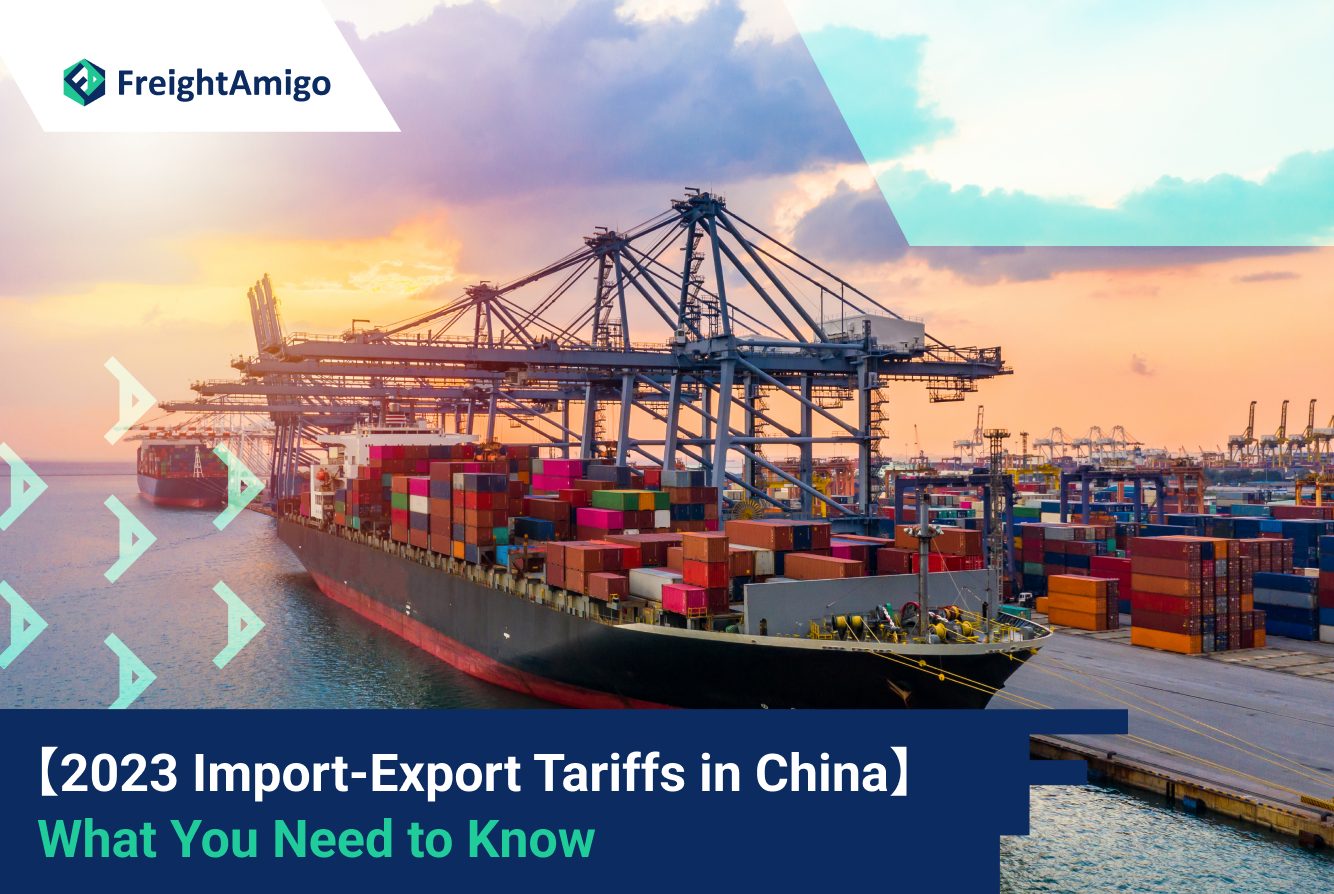In recent years, China has become an economic powerhouse, attracting businesses from around the world. However, one aspect that all businesses must navigate when engaging in international trade with China is the complex system of import-export tariffs. These tariffs are fees imposed by the Chinese government on goods imported into or exported out of the country. They can have a significant impact on the cost of doing business and must be carefully considered by companies involved in international trade.
Import-export tariffs in China serve multiple purposes. They can be used to protect domestic industries, promote economic growth, and regulate trade relationships with other countries. Understanding how these tariffs work and their implications for businesses is crucial for any company looking to engage in import-export activities with China.
Author Name:Tiffany Lee – Marketing Analyst at FreightAmigo
Want to compare the best Express, Air Freight, Sea Freight, Rail Freight & Trucking rates so as to have better control on cost?
Understanding the Impact of China Tariffs on Businesses
China tariffs have had a profound impact on businesses around the world, especially in recent years due to the ongoing trade tensions between China and the United States. The imposition of tariffs on a wide range of products has disrupted global supply chains and increased costs for businesses involved in international trade.
The impact of these tariffs is felt not only by Chinese businesses but also by companies from other countries that rely on China as a manufacturing hub or a major market for their goods. The increased cost of importing goods from China has led many businesses to explore alternative sourcing options or pass on the additional costs to consumers.
Furthermore, the uncertainty surrounding China tariffs has created a challenging business environment, with companies finding it difficult to plan and make long-term investment decisions. The constant threat of new tariffs or changes in existing ones adds an element of unpredictability that can be detrimental to business operations.
Overview of China Import Taxes and Trade Policies
China’s import taxes and trade policies are complex and constantly evolving. Businesses need to have a comprehensive understanding of these policies to navigate the import-export landscape successfully.
China imposes import taxes on various categories of goods, including agricultural products, manufactured goods, and raw materials. The specific tax rates vary depending on the type of goods and their origin. It is crucial for businesses to research and understand the applicable tax rates for their products to accurately calculate the costs involved in importing goods from China.
In addition to import taxes, China also has specific trade policies in place that businesses must adhere to. These policies regulate areas such as customs procedures, documentation requirements, and licensing obligations. Non-compliance with these policies can result in penalties or even the suspension of import-export activities.
Navigating the 2023 Import-Export Tariffs in China
As we enter 2023, businesses need to stay informed about the latest developments in import-export tariffs in China. The landscape of international trade is continually changing, and businesses must adapt to remain competitive.
The first step in navigating the 2023 import-export tariffs in China is to closely monitor any updates or announcements from the Chinese government regarding changes to existing tariffs or the introduction of new ones. This can be done through official government websites, industry publications, or by seeking guidance from trade experts.
It is also crucial for businesses to assess the potential impact of these tariffs on their operations and financials. Conducting a thorough analysis of the cost implications and exploring alternative sourcing options can help mitigate the impact of tariffs on the business.
Moreover, businesses should consider engaging with trade associations or industry groups that can provide valuable insights and resources on navigating import-export tariffs in China. Collaborating with other businesses facing similar challenges can lead to shared knowledge and strategies for mitigating the impact of tariffs.
Key Considerations for Businesses Affected by China Tariffs
For businesses affected by China tariffs, there are several key considerations to keep in mind. Firstly, it is important to evaluate the feasibility of diversifying sourcing options. Relying solely on China as a manufacturing hub may no longer be viable due to the increased costs associated with tariffs. Exploring other countries or regions for sourcing can help minimize the impact of tariffs on the business.
Secondly, businesses should assess the potential impact of tariffs on their pricing strategies. The increased costs associated with importing goods from China may necessitate price adjustments to maintain profitability. Conducting a thorough analysis of the market and competitor pricing can help determine the optimal pricing strategy in the face of tariffs.
Lastly, businesses should consider seeking professional advice from experts in international trade and customs regulations. These professionals can provide valuable insights and guidance on navigating the complexities of import-export tariffs in China, ensuring compliance with regulations and minimizing potential risks.
Conclusion: The Future of Import-Export Tariffs in China
As we look to the future, it is clear that import-export tariffs in China will continue to play a significant role in international trade. The ongoing trade tensions between China and the United States, as well as other geopolitical factors, will shape the landscape of tariffs and trade policies in the coming years.
Businesses must remain vigilant and adaptable to navigate these changes successfully. By staying informed, assessing the impact of tariffs, exploring alternative sourcing options, and seeking professional advice, businesses can mitigate the challenges posed by import-export tariffs in China and continue to thrive in the global marketplace.
There are different options for cargo transportation. If you want to choose the most convenient and suitable solution, it is best to have the full support of logistics experts! If you are planning to ship goods overseas, please go to the FreightAmigo page for inquiries.
===
Read More:
【Logistics 101】What is Delivery Schedule and How it Works?
Green Procurement: A Sustainable Approach to Purchasing
===
If you have any inquiries on logistics/supply chain, feel free to contact FreightAmigo now:
Chat with us online OR
Phone : +852 28121686
WhatsApp: +852 27467829



